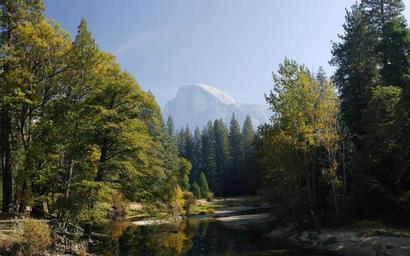Introduction
Camping is one of life's great adventures, allowing families and friends to connect with nature and create lasting memories. However, the great outdoors comes with its own set of risks, especially when it comes to campfires. Campfires can be a source of warmth, light, and an excellent cooking tool for your camping recipes, but they can also pose significant dangers if not handled correctly. In this comprehensive guide titled “ Campfire Safety Tips Every Camper Should Know,” we’ll explore everything from essential camping gear to specific safety precautions that will keep you and your loved ones safe while enjoying the beauty of nature.
Campfire Safety Tips Every Camper Should Know
Before diving into https://homeyroamy.com/discover-the-best-oregon-coast-campgrounds-for-beach-camping/ various aspects of camping safety, let's establish what campfire safety entails. It's not just about having a fire; it's about having a controlled, responsible fire that enhances your outdoor experience without endangering yourself or the environment.
Understanding Fire Behavior
What Makes a Fire Dangerous?
A fire behaves unpredictably in certain conditions. Factors such as wind speed, humidity, and surrounding vegetation can all influence how a fire spreads. Understanding these elements is crucial for making informed decisions about where and how to build your campfire.
The Importance of Choosing the Right Location
The first step in campfire safety is selecting an appropriate location. Look for areas that are at least 15 feet away from tents, trees, and other flammable materials. This reduces the risk of accidental fires spreading.
Essential Camping Supplies for Fire Safety
Gear Up: What You Need
When packing for your trip, consider including some essential items specifically for fire management:
- Fire Extinguisher: A small extinguisher can be invaluable in controlling an unexpected flare-up. Shovel: Useful for smothering flames with dirt. Bucket of Water or Sand: Always have a means to extinguish your fire quickly. Fire Starter Kit: Waterproof matches or lighters should be part of your camping supplies.
Building Your Campfire Safely
Steps to Create a Safe Campfire
Clear the Area: Remove any debris within a 10-foot radius around your chosen spot. Use Established Fire Pits: If available, utilize existing fire pits rather than creating a new one. Build a Ring: Use rocks to create a boundary around the fire pit. Start Small: Begin with kindling before adding larger logs.Campfire Cooking Techniques
Delicious Meals Without the Risk
Cooking over an open flame is one of camping's greatest joys. However, it requires vigilance. Use portable camping stoves for more controlled cooking options if you're concerned about managing flames directly.
Campfire Etiquette
Respecting Nature and Other Campers
Being courteous while enjoying your campfire goes beyond just keeping noise levels down:
- Don’t leave trash behind. Ensure everyone has ample space around the fire. Follow local regulations regarding campfires in national parks for camping.
Extinguishing Your Campfire Properly
How to Do It Right
Never leave a campfire unattended until it’s completely extinguished:
Pour water on the ashes until they’re cool to touch. Stir the ashes with a stick or shovel; add more water as needed. Ensure no live embers remain before leaving.Wild Camping Regulations You Must Know
Navigating Legal Requirements
Understanding wild camping regulations is crucial for responsible campers who wish to enjoy nature without breaking laws or damaging ecosystems.
What Are Wild Camping Regulations?
Different areas have unique rules governing wild camping practices:
- Some regions allow fires only in designated places. Others prohibit them entirely due to environmental concerns.
FAQ Section
1. What should I do if my campfire gets out of control?
Immediately call emergency services and try to smother it with soil or dirt while waiting for help.
2. Can I use any wood for my campfire?
No! Only use seasoned wood that’s free from chemicals and avoid cutting down live trees or branches.
3. How do I know if it’s safe to have a campfire?
Check local regulations and consult any posted information at campsites regarding fire bans due to dry conditions.

4. What are eco-friendly alternatives to traditional campfires?
Consider using portable camping stoves or solar cookers which reduce environmental impact significantly.
5. Is glamping safer than traditional camping?
While glamping involves more amenities and often safer environments (like RVs), following good safety practices remains essential regardless of your setup.
6. Are there specific campsites that cater better for families?
Absolutely! Look for family-friendly family camping tents campground amenities such as playgrounds, bathrooms, and organized activities designed specifically for children.
Conclusion
Camping offers unparalleled joy while allowing us to bond with family and friends amidst nature's wonders. However, understanding “ Campfire Safety Tips Every Camper Should Know” ensures that our adventures remain enjoyable rather than hazardous experiences marred by accidents or injuries. By following proper guidance on building fires safely, adhering to local regulations, using appropriate camping gear, and respecting both fellow campers and the environment itself—your next family camping trip can become not only memorable but also incredibly safe!
By prioritizing safety alongside enjoyment during outdoor activities like hiking and camping, you set up everyone involved—including kids—for successful future adventures filled with laughter rather than worry! So gear up wisely—discover best camping tents suited for your needs—and let those flames flicker safely under starry skies!